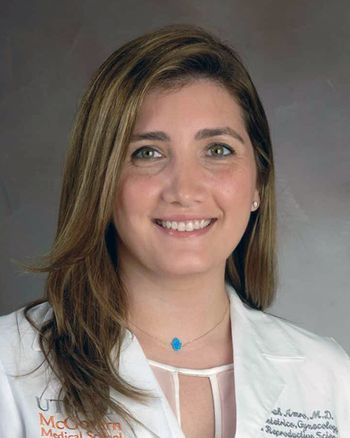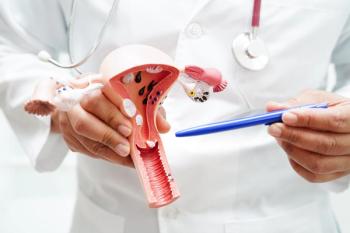
Obstetrics
Latest News
Latest Videos

CME Content
More News

Farah Amro, MD, shares her research at the 2025 ACOG ACSM on leaving the placenta in situ in select patients with placenta accreta spectrum.

Laurence Shields, MD, shares details from his latest study on hemorrhage control devices for postpartum hemorrhage at the 2025 ACOG ACSM.

A new study presented at 2025 ACOG Annual Clinical and Scientific Meeting found disparities between RSV uptake in pregnant patients.

Postpartum depression often goes undiagnosed because of a lack of screening and stigma—learn how early detection, open conversations, and new treatment options can improve outcomes for mothers.

In this Q&A, experts explain how ACOG’s tailored prenatal care model supports flexibility, equity, and shared decision-making in pregnancy.

A new study presented at the 2025 ACOG Annual Clinical & Scientific Meeting reveals that physiotherapy support during labor lowers the chances of cesarean delivery, severe perineal tears, and labor pain.

A new study finds that higher physical activity levels in late pregnancy are linked to earlier labor onset and increased chances of vaginal delivery.

Review some of the top stories from the Contemporary OB/GYN website over the last week, and catch up on anything you may have missed.

Research highlights buprenorphine’s effectiveness and safety in improving outcomes for pregnant patients with opioid use disorder, urging updates to medical guidelines.

A new study finds that temporarily stopping tamoxifen to achieve pregnancy does not increase short-term breast cancer recurrence in premenopausal women.

Devon Ramaeker, MD, dives into the expansion of prenatal genetic testing, improvements in early diagnosis of anomalies, and patient education.

Review some of the top stories from the Contemporary OB/GYN website over the last week, and catch up on anything you may have missed.

According to Joy Windley, CLC, delayed follow-ups, lack of accessible resources, and limited support systems are leaving postpartum women vulnerable to serious health and emotional challenges.

A new study reveals the pandemic significantly worsened maternal death rates across all racial groups.

The BRITE-MOM study at UCSF uses wearable ECGs to detect arrhythmias in pregnant women, aiming to improve early diagnosis and maternal cardiac outcomes.

A large cohort study shows that buprenorphine treatment during pregnancy significantly lowers the risk of preterm birth, severe maternal morbidity, and neonatal complications in women with opioid use disorder.

A new study found that prolonged time between waking and eating in pregnancy is associated with increased calorie consumption and disrupted sleep patterns.

A new study shows the Stanford Obstetric Recovery Checklist is a valid, reliable, and responsive tool for assessing outpatient postpartum recovery at multiple stages.

Despite abortion bans in several states, a new study showed no significant shift in where OBGYNs choose to practice.

A UK study links maternal anemia in early pregnancy with increased congenital heart disease risk in offspring.


A new study found that cell-free DNA from routine prenatal testing can accurately identify preterm birth risk without added cost or procedures.

A new study links gestational diabetes and high blood pressure during pregnancy to higher long-term cardiovascular disease risk, especially among women with obesity.

A new study finds that digital behavior change programs do not significantly increase moderate to vigorous physical activity among women with a history of hypertensive pregnancy disorders.

A new study reveals a sharp rise in preventable pregnancy-related deaths across the United States, with significant racial, age, and state-level disparities.



















